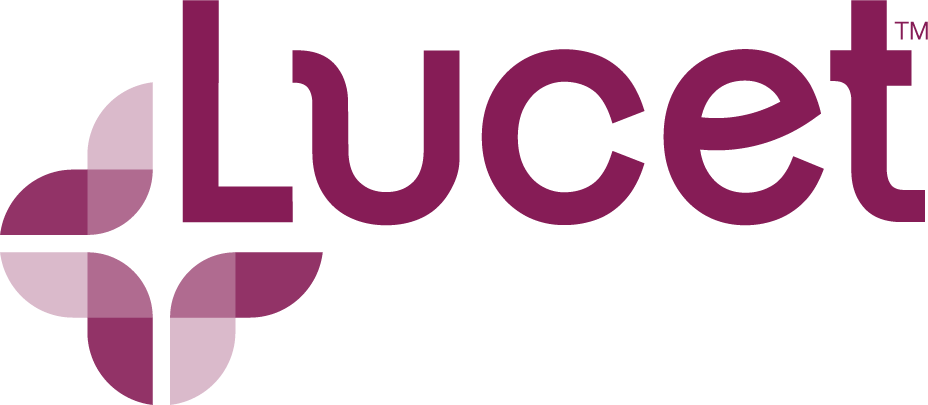Unlocking Workplace Well-Being: Modern EAPs as Strategic Tools
A recent Lucet webinar, “Unlock Workplace Well-Being: The Role of EAPs in Supporting Mental Health,” presented by Alexa Driscoll (VP, Marketing) and April Craft, LMHC, CEAP (Clinical Director, EAP Operations), explored how employers can strategically enhance their benefit offerings through progressive and comprehensive Employee Assistance Programs (EAPs). The session distinguished enhanced EAPs from basic models, highlighting that the modern approach supports employees not only during times of crisis but also in their ongoing professional development, personal growth and daily well-being.
The need for robust mental health support in the workplace is urgent: 82% of workers value employers who support mental health, according to a recent study (Mindshare Partners). Yet, many organizations fall short, with 41% of employees reporting no mental health benefits or related communications, and 37% having received no training on mental health topics. This gap necessitates providing more subclinical resources — services that bridge traditional medical benefits and everyday well-being support.
EAPs began in the 1940s as a way to address alcohol use and acute workplace stress, but their role has expanded extensively over the years. Today, they should serve as proactive growth tools — providing the “ounce of prevention” that helps individuals thrive personally and professionally while stopping challenges from becoming larger issues.

“Instead of thinking of EAP as a last resort, something people go to only when they’re in crisis, we want to reposition it as more of a growth tool.”
April Craft, LMHC, CEAP – Clinical Director, EAP Operations
Comprehensive, whole-person support
April Craft detailed how modern EAPs expand significantly beyond crisis counseling to deliver whole-person support, addressing challenges often rooted in social determinants of health (SDoH).
“Instead of thinking of EAP as a last resort, something people go to only when they’re in crisis, we want to reposition it as more of a growth tool,” said Craft. “A modern EAP is something employees and students can tap into at any time to help them grow personally and professionally.”
Enhanced EAP offerings include:
- Financial Well-Being: Providing no-cost, 30-minute consultations with financial advisors on topics like debt management or retirement planning.
- Legal Support: Offering free consultations with attorneys or mediators for issues such as custody, estate planning or tax matters, alongside digital libraries for legal templates.
- Work-Life Resources: A concierge service connecting employees to reputable local resources for childcare, elder care, housing, transportation and utility assistance.
- Coaching: Allowing employees and students to work with coaches to improve professional skills, such as time management or leadership.
- Direct Scheduling: Offers employees the ability to browse available providers and appointment slots in real-time, allowing them to schedule when it’s most convenient for them.

“It’s no longer about saying you have 15,000 providers in a network — it’s about knowing when the first available appointment is for your employees. Speed to care matters.”
Alexa Driscoll – VP, Marketing
Prioritizing speed and digital access
A critical focus of the webinar was the importance of speed to care. Alexa Driscoll shared, “It’s no longer about saying you have 15,000 providers in a network — it’s about knowing when the first available appointment is for your employees. Speed to care matters, and employees need real-time access to support.”
Lucet’s NavConnect™ is a direct scheduling platform that allows employees to self-schedule appointments, with the first available appointment in an average of one business day and an employee-selected average of 3.2 days to an appointment. This tool ensures expedited access to the right provider by considering factors such as specialty, geography, race, religion and age, while also including acuity screening for urgent cases.
To address the millions who can’t access traditional counseling, Lucet also integrates digital cognitive behavior therapy (CBT) into the EAP member portal. Digital CBT programs provide evidence-based, confidential, self-directed courses accessible across devices, covering issues like stress, anxiety, depression and insomnia. This flexible approach yields measurable results, including a reported 30% decrease in depression symptoms and a 29% reduction in anxiety symptoms.
The strategic partnership and concierge service
Lucet emphasizes the value of delivering concierge-level service. Unlike basic EAPs offering employees only a list of providers, Lucet operates a clinician-first call center where licensed mental health professionals deliver immediate support and guide members to the appropriate care. The process is frictionless, with Lucet handling appointment confirmations and reminders to remove the burden from the employee. For organizations using both EAP and behavioral health benefits, this approach ensures single-call resolution and prevents gaps in care.
A comprehensive EAP should serve as a strategic partner for HR and managers. Organizational support includes dedicated account management, management consultations, and critical incident response. Holistic reporting and insights provide actionable data for employers, tracking metrics like utilization, digital CBT engagement and employee satisfaction. These reports highlight why employees are engaging, allowing HR teams to tailor interventions and strengthen organizational health initiatives moving forward.
Britta Nordstrom, MBA is a senior marketing specialist at Lucet.




